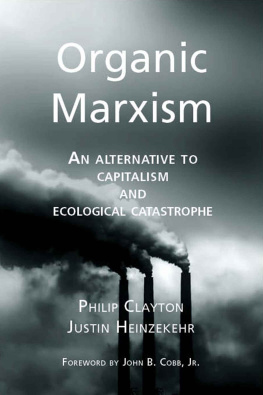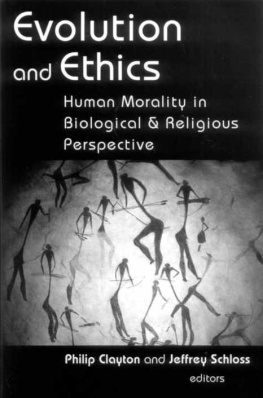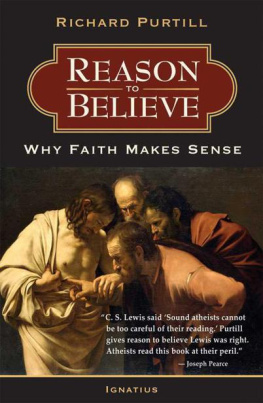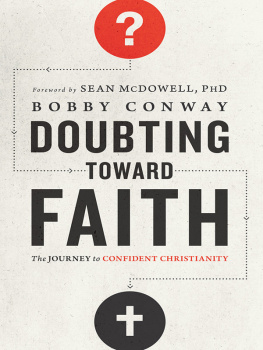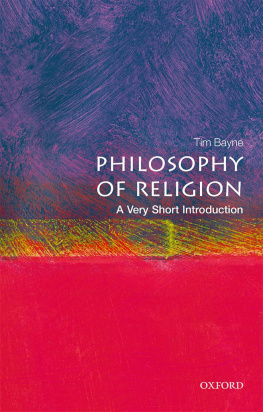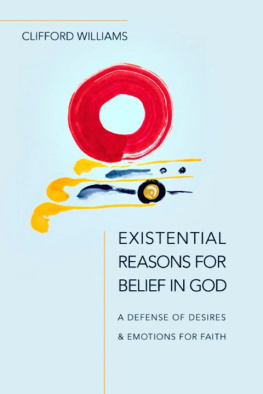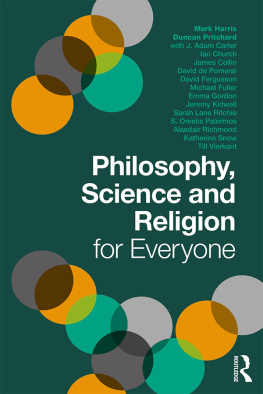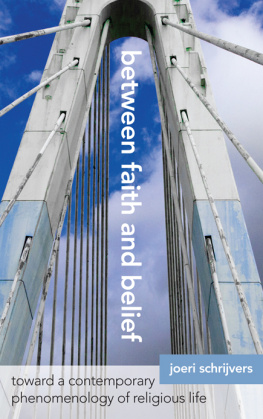Contents
(p.vii) Preface
This is a difficult era for those who find themselves committed to the values of scientific rationality and yet moved by the claims of a religious tradition. It is rare for such persons to receive a hearing, let alone an enthusiastic one, from either the scientifically minded or the religiously committed. Formerly open camps have circled the wagons, and exploratory dialogue has given way to ad hominem rhetoric. Not surprisingly in such a climate, it is not easy for inquiring readers to find resources that will help them determine how far the assumptions of science, together with other sources of religious doubt, really do cut into the viability of religious claims. As a result, it is hard to decide what parts of ones tradition it makes sense to reject or retain.
To look with probing, even skeptical eyes at religious belief is not, after all, a normal part of the work of religious scholars, at least not in our day. In an era of increasingly open hostility toward religious truth claims, some of it voiced by distinguished scientists, it has become almost exclusively the task of secular philosophers and other opponents of religion to raise the probing questions. In response, religious scholars are inclined more and more to take a defensive posture, focusing their efforts on protecting religion in general, or more often the specific beliefs of their own tradition, from attack. In an era of such antipathy toward religious truth claimsso the reasoning appears to goscholars who are in any way sympathetic to religion should concentrate exclusively on its defense, lest they inadvertently give ammunition to its opponents.
As understandable as this response may be, it has produced a literature unhelpfully confined to rhetorical combat. Those who eschew both sides have usually become agnostics, abjuring the debate in favor of spiritual practices, religious ethics, or a mystical unknowing in the face of questions of ultimacy. Best-seller lists are packed with hostile treatments of religious belief bearing titles such as The God Delusion, (p.viii) God is Not Great, Breaking the Spell, and Religion Explained; they in turn have spawned dozens of religious counterattacks. But remarkably rare are the treatments that, while basically sympathetic to religious belief, attempt to sift carefully through the arguments for and against core religious propositions such as the existence of God. Precisely this lack in the contemporary literature provides the motivation of this book.
Now there might seem to be a glaring error in the claim just made. Is the market not full of books that criticize religious traditions from within and advocate revising them in ways that will make them more relevant to the world we now live in? Such books have subjected Christian, Jewish, and, more recently, Muslim belief and practice to piercing scrutiny. They typically argue that much (and many argue that virtually all) of what these traditions once held is no longer plausible. At first glance, it would seem that these books sufficiently fill the need for self-critical treatments of religious belief.
As a rule, however, the revisionists perform only half the required task. Among those interested in the Christian tradition, for example, the revisionist or liberal authors are frankly critical of inherited doctrines, cheerfully jettisoning convictions that once defined the core commitments of Christianity. And yet many authors subject their own proposals to rather less critical attention (although there are some notable exceptions). Whatever is deemed worthy of preservingan experience of new being, a commitment to environmental stewardship, or resistance to racial, sexual, or economic oppressionis often put forward with the same unwavering passion of religious conviction with which the traditional beliefs themselves were once advanced. More to the immediate point: less critical scrutiny is focused on the assumptions that lead these authors to reject the religious truth claims their own proposals are intended to replace.
In all the respects we have just mentioned, commentary on religion typically stops short, at present, of addressing what we are calling the predicament of religious belief in todays world. That predicament, as we understand it, has two facets: on one side, the difficulty of formulating traditional claims about what is ultimately the case in ways that take full account of all the reasons for doubting those claims; on the other side, the need to do justice to the axiological and theoretical power of those accounts of ultimate reality that metaphysical reflection and religious traditions variously suggest.
represent, in our judgment, deep and serious challenges. These are the kinds of worries that give or should give serious pause to people who are wondering whether Christian beliefthe case on which we will mainly focusis still viable. Moreover, it seems to us that theologians who work professionally at formulating religious teachings have an obligation to understand and respond to these grounds for doubt. It may well be the case that belief in God, at least in its Christian form, should not continue unchanged in the face of these critical concerns.
Yet we are not convinced that these worries by themselves are sufficient to render every belief in some form of ultimate reality outdated or irrational. Over the course of a research program lasting more than two decades now, in numerous conference publications, and in a variety of articles and books, we have sought to determine what revisions were required by the challenges to belief and what responses remained available in the face of those challenges. When it comes to the more specific claims of the Christian tradition, one must acknowledge the specific assumptions, commitments, and experiences that motivate an ongoing interest in this tradition and its particular affirmations. Given this set of interests, we will show, some traditional claims remain problematic, some have an indeterminate status, and some are in fact untouched by the standard criticisms. Even in the case of Christianitys most contentious claims, those regarding the ultimate fate and status of its founder, it turns out that there is a relatively small number of serious objections and a limited number of ways of responding to them. When one gives these matters sustained critical attention, resisting the tendency toward snap judgments in one direction or another, it is possible to develop a pretty good sense of the lay of the land.
We are under no illusion, however, that the arguments presented in this book are likely to sway those in either of the warring camps mentioned at the outset. There is no way, for instance, to compel a physicist who regards the universe as simply the meaningless result of mindless forces to take seriouslyor to regard with any interest at allthe degree to which the very ability of human beings to understand (p.x) such phenomena raises questions that point beyond what physics itself can establish. We cannot deny the immense emotional appeal of restricting ones view of reality to whatever can be measured and explained by the lights of ones own discipline! Similarly, there is no way to compel a contented believer in traditional religious claims to take seriously the grounds for wondering if those claims are actually true. Our arguments are not aimed at those who are happy to remain at either extreme, but are offered as guidance for those who wish to go where reason and experience may lead. We dedicate this effort to all, of every faith or no faith, who approach the ultimate reality in that spirit.


